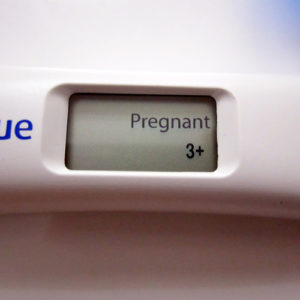Around 1 in 6 couples in the UK have difficulty conceiving, and in up to half of these cases, a male fertility problem is a contributing factor. The good news is that many lifestyle factors within a man’s control can impact sperm health and fertility. By making changes in key areas, men may be able to improve their reproductive health and boost their chances of conceiving.
1. Reach and Maintain a Healthy Weight
Being overweight or obese can negatively affect male fertility in several ways. Excess fat tissue increases estrogen production which can reduce testosterone levels and sperm production. It can also lead to impeded sperm development and DNA damage. Additionally, obesity contributes to inflammation which may harm sperm and reduce motility.
Losing excess weight through diet and exercise is an important step. Eat plenty of fruits, vegetables, whole grains, and lean proteins. Limit processed foods, takeaways, sugary drinks, and excessive alcohol. Get regular moderate exercise for at least 30 minutes per day, 5 days a week. Reaching and sticking to a healthy BMI in the 18.5-24.9 range can help restore hormonal balance and improve sperm health.
2. Quit Smoking
Smoking cigarettes or cannabis has been conclusively linked to reduced male fertility. Tobacco smoke contains toxins that can damage sperm DNA leading to poor motility and abnormal shape and size. Nicotine also impedes testosterone synthesis which can reduce sperm count. Marijuana may impact hormones, sperm function, and libido.
Quitting smoking allows the body to heal and for sperm health to improve. It takes around 3 months for sperm to regenerate, so plan accordingly. Ask your doctor about quit-smoking aids and support groups. Avoid secondhand smoke as well. Having a smoke-free home and car can further protect your fertility.
3. Minimise Stress
Mental health and fertility are closely tied in men. Stress triggers the release of cortisol and other hormones that suppress testosterone production and sperm development. Prolonged stress and accompanying sleep loss, alcohol use, and poor diet create “a perfect storm” hampering fertility.
Make stress management a priority through regular exercise, meditation, yoga, or talk therapy. Set aside time each day to relax – listen to music, read, or spend time outdoors. Say no to extra tasks and build breathing breaks into your day. Keeping stress in check can help normalise hormones and increase chances of conception.
4. Limit Environmental Toxin Exposure
Various environmental toxins are known to impact male reproductive health. Pesticides, BPA plastics, phthalates, and heavy metals can all negatively affect hormone levels and reduce sperm count, motility and shape. While total avoidance is difficult, minimising exposure is wise.
Eat organic produce whenever possible and thoroughly wash non-organic fruits and veg. Use glass or stainless steel food containers; avoid heating food in plastic. Avoid skincare and household products with “fragrance” listed, as this indicates phthalates. Dust and wet mop regularly to reduce toxins at home. Making thoughtful product and lifestyle changes can lower your overall toxic load.
5. Get 7-9 Hours of Sleep Nightly
Insufficient sleep is linked to decreased testosterone production along with reductions in sperm count and motility. Lack of sleep also disrupts circadian rhythms and impairs glucose metabolism, both of which impact fertility. Being well rested is key.
Aim for 7-9 hours per night. Maintain a regular bedtime and wake time, even on weekends. Make your bedroom cool, dark and relaxing. Avoid electronic screens before bed – the blue light hampers melatonin release. Limit caffeine and alcohol which can disrupt sleep. If you have ongoing insomnia or sleep apnea, consult your GP. Healthy sleep enhances hormonal balance and fertility.
The road to fatherhood may involve many factors, but making positive lifestyle changes is a great place to start. Optimize your diet, activity, sleep, and stress management. Limit environmental exposures when possible. With time and consistency, these steps can help maximise your reproductive health and ability to conceive. Be patient through the process and seek medical guidance if needed.
Trying for a Baby? A Male Fertility Test Offers Answers
If you and your partner have been attempting to conceive without success, it can be incredibly frustrating and worrying. Traditionally the focus has been on tracking the woman’s cycle, but male factor infertility plays a role in around 30-40% of couples struggling to get pregnant. This is why a simple at-home sperm test can offer men valuable information early in the process.
The Zoom Baby Male Fertility Test Kit allows you to privately check your sperm concentration, a key indicator of fertility, in a matter of minutes. The test determines whether your sperm concentration is above or below 15 million sperm per mL, the typical minimum for fertility.
A positive result suggests your sperm concentration is within a normal, healthy range. However, it’s wise to repeat the test 2-3 times to establish your true baseline, as sperm quality varies. A negative result indicates your sperm concentration is below optimal levels, and seeing a doctor for a full fertility workup is recommended.
The main benefit of this test is being able to quickly and discreetly screen for potential issues on your end, rather than waiting months trying naturally when an underlying problem exists. If sperm challenges are identified early, your doctor can advise on lifestyle changes, supplements, or assisted reproductive techniques to aid conception.
Knowledge reduces the helplessness and frustration of struggling to conceive without answers. While not a replacement for a full semen analysis, this simple at-home sperm test allows you to gain initial insight into your fertility status. Removing some uncertainty around conception through objective information can help ease the anxiety many couples experience.
If you’ve been attempting to start a family without success, checking your sperm concentration is a constructive step. While secondary to evaluating a woman’s fertility, this knowledge empowers you to better understand your options on the path to parenthood.
Photo by Zoom Baby
Zoom Baby is a leading supplier of Pregnancy Tests and Ovulation Test Kits






